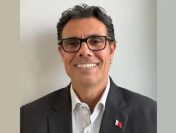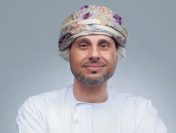
Nawah Scientific™, a life sciences startup, has been selected on the prestigious #YASR30 2023 List by the Yale Africa Startup Review. This selection was made by an esteemed panel of Africa’s leading venture capital judges and ecosystem partners, recognizing Nawah’s contribution to the innovation and ingenuity of the African startup ecosystem.
The Awards Ceremony took place on March 30th, at the Yale School of Management in New Haven, Connecticut and brought together representatives from the Yale School of Management’s Dean’s Office, Endeavor, BCG Digital Ventures, Gilead Sciences and Dalberg.
Launched in 2015, Nawah Scientific™ has been transforming the scientific ecosystem by providing scientists with access to state-of-the-art scientific facilities and related know-how, enabling them to carry out sophisticated and thorough scientific research. Nawah has processed over 300,000 samples from 12 countries, with an average growth rate of 250% year-on-year. With a team of 100+, Nawah Scientific™ currently services academia, as well as the pharmaceutical and food industries. The company was also the winner of the Jack Ma prize in 2019, and has been deemed the fastest-growing life sciences startup in the MENA region.
The Yale Africa Startup Review (YASR) is a student-led annual feature that aims to showcase the innovation and entrepreneurship of African startups. Created by Yale School of Management business school students from different African countries, YASR seeks to provide a platform for African entrepreneurs to connect with global investors and stakeholders. Through a holistic approach that evaluates nominees according to 25 distinct metrics across five broad categories, YASR uncovers the most promising startups in Africa.
Nawah Scientific™ CEO and founder, Dr Omar Sakr said the following: “We are proud to be included in the YASR30 list and grateful for the recognition of our contribution to the African startup ecosystem. Nawah Scientific remains committed to providing scientists with the necessary tools and resources to advance scientific research across the African continent and beyond.”




